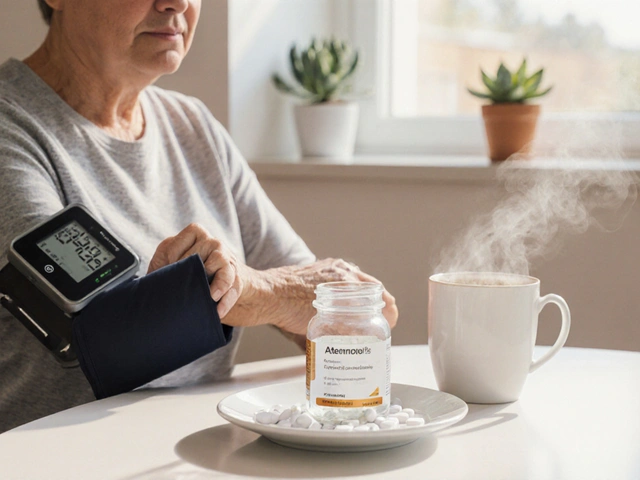Allergic Conjunctivitis Management: Simple Steps to Soothe Itchy Eyes
Allergic conjunctivitis shows up as red, watery, and itchy eyes when pollen, pet dander, or dust irritate the thin membrane covering your eyeballs. It’s not dangerous, but it can mess up your day. The good news is you can control the symptoms with a few easy habits and the right meds.
Identify Triggers and Reduce Exposure
The first move is to figure out what’s setting off your eyes. Keep a quick diary of when flare‑ups happen – note the season, indoor activities, and any new cosmetics. Once you spot the culprits, limit contact: close windows during high pollen counts, use HEPA filters, and wash your face and hands after handling pets.
Medication Options That Work Fast
Over‑the‑counter antihistamine eye drops are the go‑to for immediate relief. Look for brands with ketotifen or olopatadine; they block histamine and calm inflammation within minutes. For longer relief, oral antihistamines like cetirizine or loratadine help when eye drops alone aren’t enough. Remember to start with the lowest dose and see how you feel.
If your eyes feel dry or gritty, lubricating drops (artificial tears) can wash out allergens and keep the surface smooth. Use preservative‑free formulas several times a day, especially after you’ve been outdoors. A cold compress applied for a few minutes can also shrink blood vessels and cut the itch.
Stubborn cases may need prescription drops such as mast‑cell stabilizers or short courses of corticosteroids. These are powerful and should only be used under a doctor’s guidance because long‑term use can raise eye pressure or cause cataracts.
When to see a professional? If redness spreads, vision blurs, or you develop light sensitivity that doesn’t improve, schedule an eye exam. An optometrist can rule out other conditions like infection or dry‑eye syndrome that need different treatment.
Beyond meds, simple lifestyle tweaks keep symptoms low. Wear sunglasses outdoors to shield your eyes, keep contacts out during high‑allergy days, and shower after gardening or mowing the lawn. A daily rinse with saline solution can also clear residual pollen.
Finally, stay on top of seasonal forecasts. Apps and local weather sites list pollen counts; plan outdoor activities when the numbers are low. Pairing this awareness with the steps above gives you control over itchy eyes without constantly reaching for the tissue.
Allergic conjunctivitis may be annoying, but with the right trigger tracking, targeted drops, and a few everyday habits, you can keep your eyes clear and comfortable all year long.
How Exercise Helps Prevent and Manage Allergic Conjunctivitis
By Joe Barnett On 5 Aug, 2025 Comments (20)

Discover how regular physical activity can reduce the frequency and severity of allergic conjunctivitis, boost ocular immunity, and complement traditional treatments.
View More



